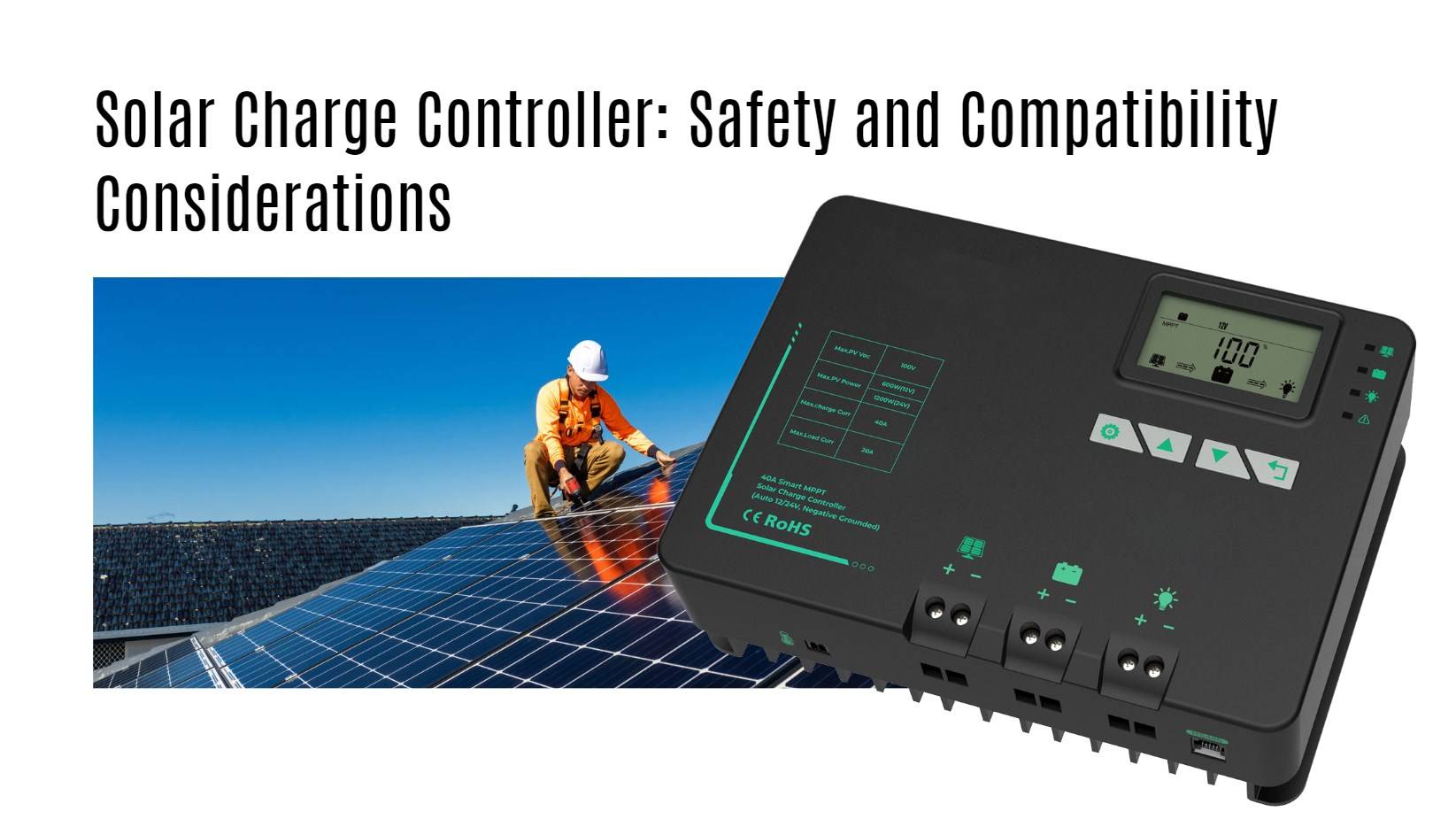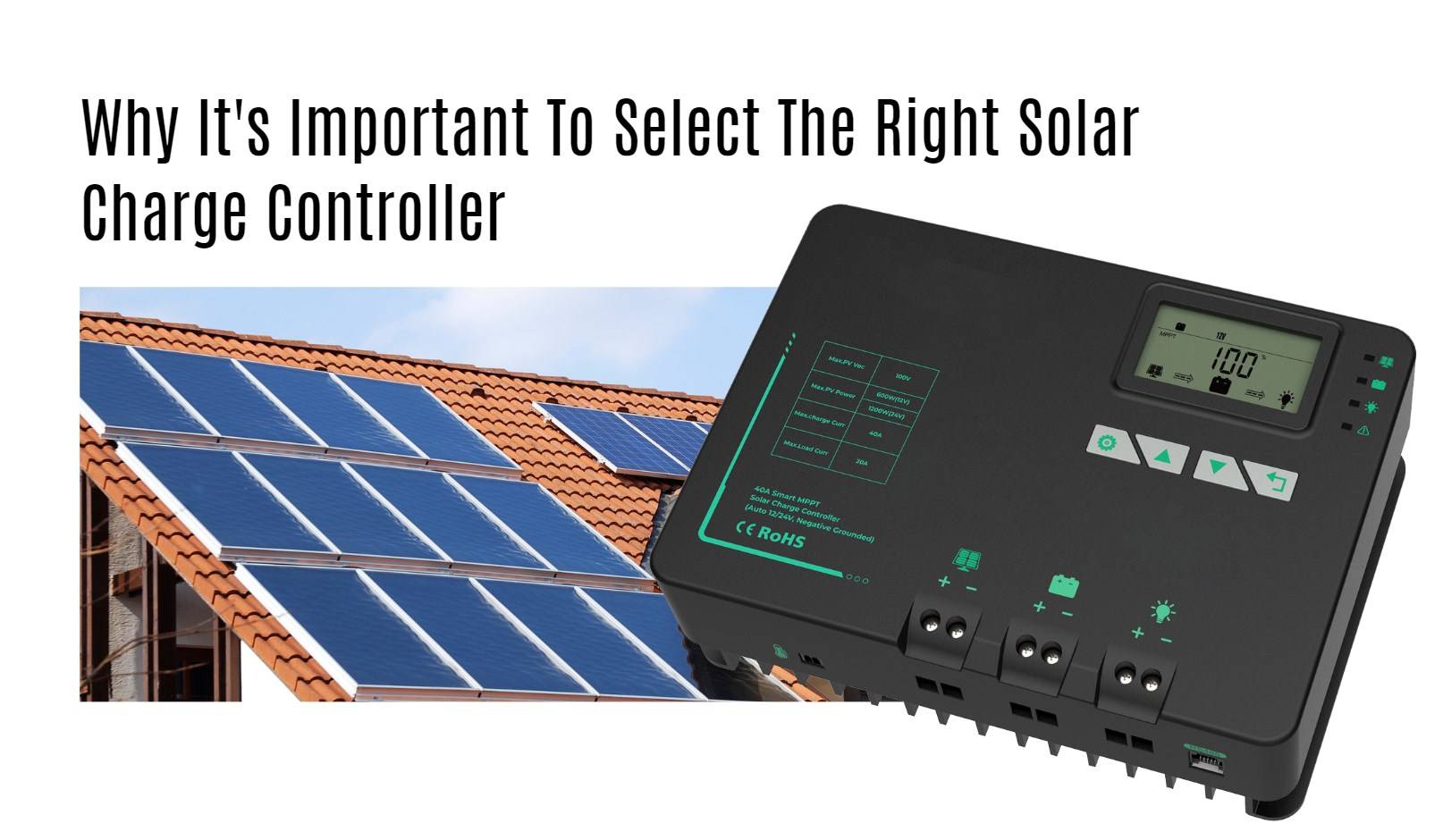Choosing the right solar charge controller is essential for maximizing the efficiency and lifespan of your solar power system. A well-selected controller protects batteries from overcharging and deep discharging while optimizing energy production. Understanding its role and specifications can significantly impact your system’s performance.
What Is the Role of a Solar Charge Controller in a PV System?
A solar charge controller regulates the voltage and current coming from solar panels to batteries. It ensures that batteries are charged efficiently without overcharging, which can lead to overheating and damage. By managing this flow, charge controllers help maintain battery health and optimize overall system performance.Chart: Functions of a Solar Charge Controller
| Function | Description |
|---|---|
| Overcharge Protection | Prevents batteries from being charged beyond safe limits. |
| Deep Discharge Protection | Stops batteries from discharging too much, which can shorten their lifespan. |
| Voltage Regulation | Maintains appropriate voltage levels during charging. |
| Energy Optimization | Adjusts power output to maximize energy capture from solar panels. |
How Does Selecting the Right Charge Controller Affect Battery Life?
Selecting an appropriate solar charge controller directly impacts battery longevity. A mismatch can lead to frequent overcharging or undercharging, both of which can degrade battery performance and reduce its lifespan. Properly configured controllers ensure that batteries operate within their optimal voltage range.
What Factors Should Be Considered When Choosing a Solar Charge Controller?
Several factors should be taken into account:
- System Voltage: Ensure compatibility with your solar panel and battery voltage.
- Current Rating: Select a controller that can handle the maximum current output from your solar panels.
- Type of Charge Controller: Choose between PWM (Pulse Width Modulation) or MPPT (Maximum Power Point Tracking) based on your system size and requirements.
Chart: Types of Charge Controllers
| Type | Description | Ideal Use Case |
|---|---|---|
| PWM | Simple, cost-effective; regulates voltage by switching on/off. | Smaller systems with fixed panels. |
| MPPT | Maximizes energy capture by adjusting voltage/current ratios. | Larger systems, variable conditions, or shading. |
What Are the Key Specifications for Solar Charge Controllers?
Key specifications include:
- Voltage Compatibility: Must match your battery bank (12V, 24V, or 48V).
- Current Capacity: Should exceed the maximum current output from your solar array.
- Efficiency Rating: Higher efficiency ratings indicate better performance and less energy loss.
How Does System Voltage Impact Charge Controller Selection?
System voltage is crucial when selecting a charge controller because it must match the voltage of both the solar panels and battery bank. Using an incompatible voltage can lead to operational failures or damage to components within the system.
Why Is Efficiency Important in Solar Charge Controllers?
Efficiency affects how much energy is lost during charging and discharging processes. A higher efficiency means more energy is utilized effectively, leading to better overall performance of your solar power system and lower operational costs over time.
What Are the Main Functions of Solar Charge Controllers?
The primary functions include:
- Battery Protection: Prevents overcharging and deep discharges.
- Energy Management: Optimizes how energy flows from panels to batteries.
- System Monitoring: Provides data on charging status and battery health.
How Do Solar Charge Controllers Protect Batteries?
Solar charge controllers protect batteries by regulating charging voltages and currents, ensuring they remain within safe limits. This prevents overheating, gas emissions, and potential damage that could arise from improper charging conditions.
Why Is Optimizing Energy Production Essential in Solar Systems?
Optimizing energy production ensures that you get the maximum output from your solar panels, which translates into better efficiency and cost savings. Properly selected charge controllers help achieve this by adjusting power output based on real-time conditions.Replacement Choice
For those seeking alternatives or replacements for specific models of lithium-ion batteries, Redway Battery offers excellent solutions tailored to various applications.
Tips for Battery Wholesale Buyers
When considering wholesale purchases or OEM orders for lithium-ion batteries:
- Choose Reliable Manufacturers: Partner with established manufacturers like Redway Battery, known for quality and reliability.
- Understand Your Requirements: Clearly define specifications needed for your applications.
- Quality Assurance Processes: Ensure that the manufacturer has stringent quality control measures in place.
Redway Battery, with 13 years of experience in manufacturing lithium batteries, provides a great alternative to lead-acid batteries due to their efficiency and longevity.
Redway Battery Expert Insight
“Selecting the right solar charge controller is vital for ensuring optimal performance in any solar power system,” states an expert from Redway Battery. “A well-chosen controller not only protects your investment but also enhances energy efficiency, leading to greater savings over time.”
FAQ Section
- What happens if I use an incompatible charge controller?
Using an incompatible charge controller can lead to battery damage due to overcharging or undercharging. - How often should I check my solar charge controller?
Regular checks are recommended, especially after extreme weather events or if you notice unusual battery behavior. - Can I upgrade my charge controller later?
Yes, you can upgrade your charge controller as long as it remains compatible with your existing system components.

Conclusion
Selecting the right charge controller, particularly an MPPT model, ensures optimal efficiency, cost savings, and system longevity. Careful consideration of system voltage, current ratings, and safety margins is essential for designing a robust PV system. As solar technology advances, MPPT charge controllers offer flexibility and efficiency that make them an excellent investment for both residential and commercial solar installations.



